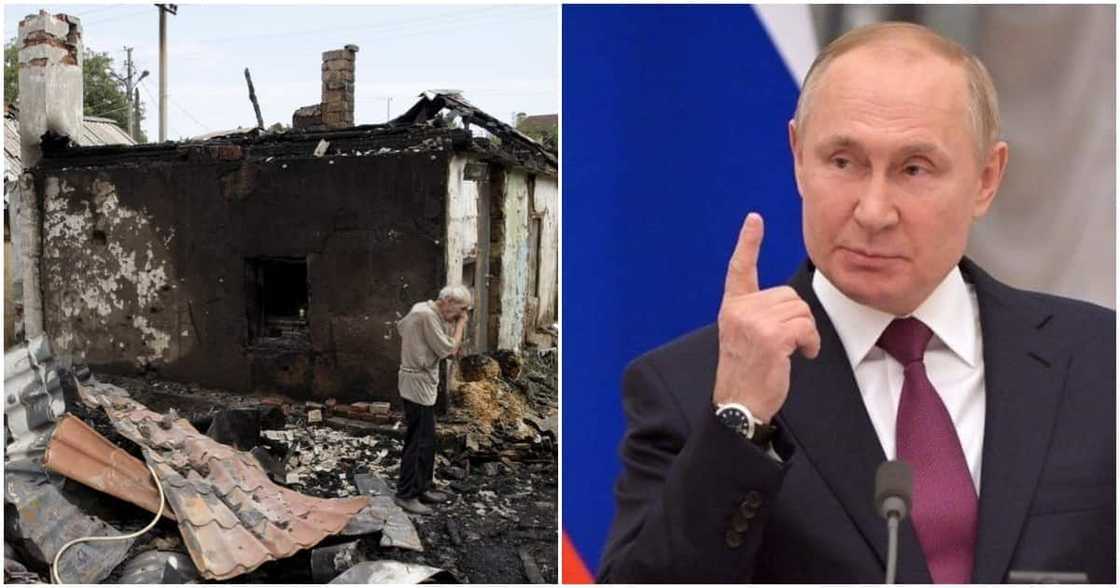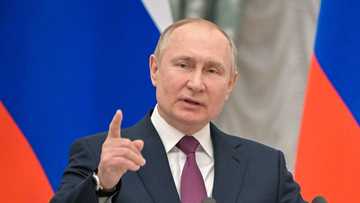The Russian invasion of Ukraine: Disruptions of Global Food Security and Food Exports to the African Region
- While the diplomatic tiff between Ukraine and Russia should have been a matter of concern to the two ex-Soviet partners and other adjoining democracies, Africa got herself feeling the heat of the row
- Africa's food security is massively dependent on the two countries given the considerable food imports the continent receives from them
- With the current situation, despite the intensity of the fight toning down, African agribusiness and the Ukrainian food exports to the continent seem to continue struggling
PAY ATTENTION: Follow Briefly News on Twitter and never miss the hottest topics! Find us at @brieflyza!
In February this year, Russia launched an attack on Ukraine.

Source: UGC
The long-feared full-scale fight pitting Russia against the Eastern European nation started on Thursday, February 24, with hundreds of people reportedly killed and thousands displaced already.
Russian forces invaded the country by air, land and sea after President Vladimir Putin announced a "special military operation" in a televised address to his citizens.
A headstrong Putin lamented that his country could not feel "safe, develop and exist" over what he claimed was a constant threat from Ukraine.
PAY ATTENTION: Never miss breaking news – join Briefly News' Telegram channel!
Soon afterwards, explosions were reported on the outskirts of the cities of Kharkiv, Mariupol as well as the capital city Kyiv, leading to a mass exodus of people from the European democracy which has a population of about 44 million people.
The South African Institute of International Affairs (SAIIA), an independent public policy think tank, organised a Webinar in which the aftershocks of the war were analysed.
Effects of the aftermath of Russian-Ukrainian row on Africa
While the attack only involved ex-Soviet partners, the repercussions of the tiff were far-reaching.
Continents outside Europe and Asia would later have a feel of the ripple effect of the diplomatic row between Moscow and Kyiv, which now became a matter of global concern.
Close to four months into the Moscow invasion of Kyiv, the world, Africa in particular, is yet to recover from the aftermath of the diplomatic animosity.
The row between the two nations has disrupted the export and production of food products in Ukraine and Russia, Africa on the other end of the chain feeling the heat.
In 2021, exports from Ukraine to African countries amounted to USD 2.327 billion (equivalent to KSh 270 billion), accounting for slightly above 13% of total exports of agricultural products.
Countries in the arid regions of North Africa import more than 90% of their food from Ukraine and Russia and with the tension remaining intact, the nations tend to face the risks of famine and starvation.
Speaking in the SAIIA online forum, Professor Vitalii Dankevych, a food security expert in Ukraine, underscores the fact that Africa's food security is sadly uncertain after supplies from Ukraine were held back.
Food security
With the current situation, despite the intensity of the fight toning down, African agribusiness and the Ukrainian food exports to the continent seem to continue struggling.
While the Eastern European nation could be boasting of a couple of international partners, Africa becomes atop its list.
Even with its huge populace, Ukraine happens to be an industrial agrarian country and one of the largest producers of food products in the world; thus 45% of the nation's revenue is generated from food exports.
Among the main food crops produced and exported to Africa by Ukraine are maize, corn, sunflower, wheat and Barley.
Dankevych argued that Ukrainian partners could be staring at a crisis as the two nations continue to exhibit their non-commitment towards realising a truce.
Currently, about 283 million people in 81 countries are facing an acute shortage of food as Kyiv restrains exports to serve her population.
It should not be lost that a good 19% of Ukrainian population engages in agriculture and hence with the war, farm produces are currently at their lowest; compatriots were also forced to down their tools so as to join their army to fight for their country.
After Russia unleashed its missiles and other arsenals in Ukraine, farms and machinery used for agricultural production were destroyed putting at risk the global food security initially assured by food exports.
Further, Dankevych noted that the bombing of Ukrainian localities by the Russian Federation dealt a blow to the assured agriculture potential of the country.
According to him, the invaders were keen on seizing the complex machinery necessary for the agrarian business, thus hurting the food production process.
With the interference in the Ukrainian exports, countries have had to trade with he scarce supplies which have had market prices surging as demand outdoes supply.
Upcoming event:
SAIIA has another Webinar coming up in 7 June (2pm – 3.30pm).
The online forum will delve into the;
“Potential Implications of the Russian invasion of Ukraine on the Global governance and financial systems”.
Presentation will be by Priyal Singh from the Institute of Security Studies (ISS) and Vladyslav Rashkovan from the International Monetary Fund, Alternate Executive Director for Ukraine.
Source: Briefly News

Kelly Lippke (Senior Editor) Kelly Lippke is a copy editor/proofreader who started her career at the Northern-Natal Courier with a BA in Communication Science/Psychology (Unisa, 2007). Kelly has worked for several Caxton publications, including the Highway Mail and Northglen News. Kelly’s unique editing perspective stems from an additional major in Linguistics. Kelly joined Briefly News in 2018 and she has 16 years of experience. Kelly has also passed a set of trainings by Google News Initiative. You can reach her at kelly.lippke@briefly.co.za.

Naomi Kobbie Naomi is an entertainment writer with 3 years experience in the world of radio and print media. She is a language graduate from the University of Pretoria (2020) and has worked for Briefly News since 2021. Naomi has a passion for the written word, whether through her work as a journalist or as a soulful singer. "When I'm not working, I spend my time producing music, travelling or snuggling up with a good movie and some butter popcorn."




